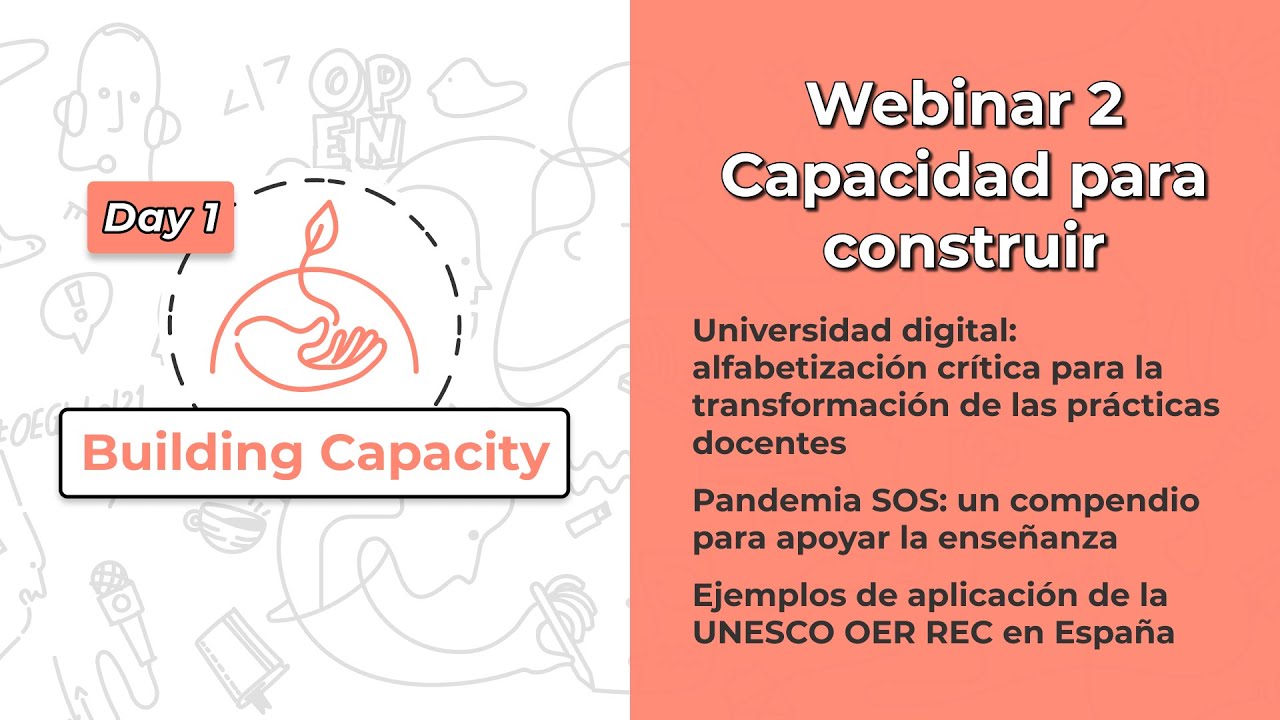Gema Santos-Hermosa (University of Barcelona), Ángel L. González (Pearson Educación)
The aim of this presentation is to share some examples of the adoption of the UNESCO OER Recommendation in the Spanish context.
Spain still does not have an Open Education (OE) strategy at national level, but OE is an element of the Open Science umbrella which is increasingly gaining interest. Some projects, promoted by the government and educational institutions, aimed to create and share OER in educational platforms and institutional repositories have been developed; both in primary and secondary education and in Higher education. Currently the challenge to adopt these OER Recommendations constitutes a decisive step forward in this regard.
The initiatives presented below refer to each of the five action areas of the UNESCO OER Recommendation, bearing in mind that some of them are better covered than others.
1. Building the capacity of stakeholders to create, access, re-use, adapt and redistribute OER
Several OER projects have been developed mainly focused on teachers. They consist in promoting awareness through training toolkits (Kit de REA), offering different open source authoring tools (such as eXeLearning) and providing repositories to share them (Banco de recursos EDIA, Materials Docents en Xarxa -MDX, Red española de bibliotecas universitarias -REBIUN institutional repositories, etc).
2.Developing supportive policy for OER;
Although this is an area which needs a stronger national commitment, we have some institutional policies supporting OER: UNIR Open Education Policy (2019) and UOC Open Knowledge Policy (2021). It is also highlighting the development of UNE71362; an international standard to measure the quality of digital educational materials.
3.Encouraging inclusive and equitable quality OER
We are working to guarantee the inclusiveness of our OER. An example is ARASAAC, which offers graphic and open resources to facilitate cognitive accessibility to all people.
4. Nurturing the creation of sustainability models for OER;
It has usually been the pending subject. However, recently, teacher-focused programs have emerged in different regions, offering incentives for developing OER. The programme “Creación de Recursos Educativos Abiertos” (CREA) is an example.
5.Promoting and reinforcing international cooperation in OER.
We are collaborating with different international networks and working groups related with OE and OER in order to sum efforts to promote them.
Extended abstract: OE_Global_2021_paper_88.pdf 📄
Webinar Information
This presentation is part of Webinar 02 Capacidad para construir taking place in your local time → .
Webinar Access (registered conference participants only):
![]()
![]() Go to Webinar 02
Go to Webinar 02
UNESCO OER Action Area: Building capacity
Language: SpanishSee the other presentations that take place in this webinar.
Presentation Recording
Participate
Before the webinar the authors will be asked to reply below with links to their presentation materials, related videos, and other relevant links, as well as prompts for discussion here.
For anyone that missed the live session, an archive will be posted here as soon as possible.
Conference participants are urged also to reply below with questions, comments for the presenters or to share related resources.
